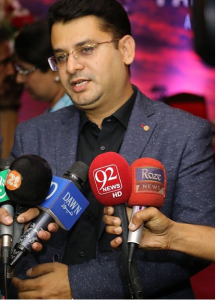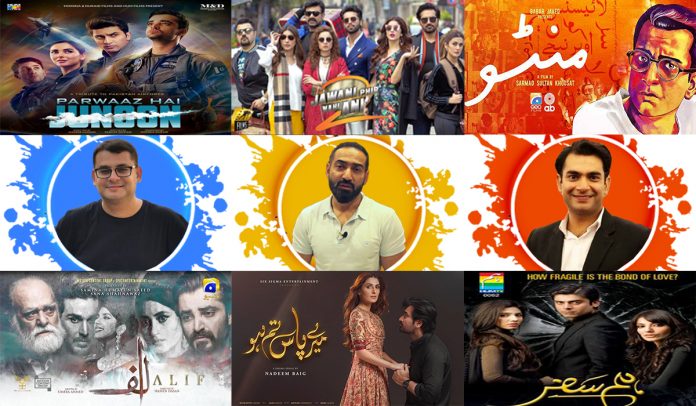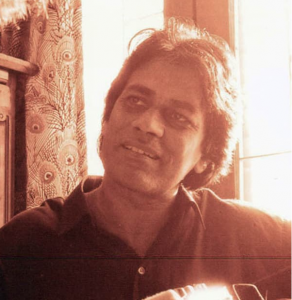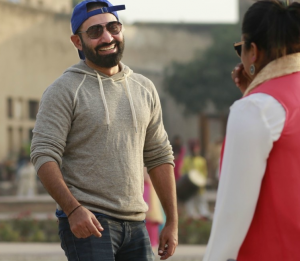The Pakistani television serial industry is probably the most influential entertainment-related entity under the broader umbrella of the Pakistani entertainment industry. Not only has it been consistent in terms of producing content, but it is the most globally known form of entertainment that Pakistan has to offer — although Pakistan’s cinema is now fast catching up.
For over a decade, Pakistani television serials have constantly improved and have managed to captivate a large audience both locally or internationally. Over the years, the television serial industry has taken upon itself to cater to a large unmet demand for electronic entertainment in the country and has been rather successful at that.
Laying a strong foundation for cinema
Taking a look at the current landscape of the Pakistani entertainment industry, especially the movie industry, it is very easy to notice how some of the strongest visions and voices in Pakistani cinema belong to individuals with a background in making or acting in television serials. While mainstream Pakistani film industry was getting ready to take its steps towards revival, Pakistani dramas were already beating the competition in terms of both ratings and critical appreciation.
Simply put, the revived Pakistani cinema owes a lot of credit to its sister television-serial industry, which over the years has continued to provide a strong foundation of support for its progress.
The man who started it all: Shoaib Mansoor
When we think of the phrase “revival of Pakistani cinema”, films like Khuda Kay Liye and Bol top the list. These were the films that first got the attention of audiences in the country as well as internationally that Pakistani still has it to produce brilliant films. Khuda Kay Liye was a reminder of the classic period of Pakistani cinema with its relevant themes and their top-notch presentation within a tight film narrative.
The man behind the film was, of course, Shoaib Mansoor whose contributions towards Pakistani drama can never be forgotten. Some of the unforgettable titles of the golden era of PTV like Fifty Fifty, Ankahi, Sunehray Din, and Alpha Bravo Charlie, all have his name attached to them.
The brand new crop
Three of the biggest hits of the Pakistani box office are all directed by one man, Nadeem Baig. With Jawani Phir Nahin Ani, Punjab Nahin Jaungi, and last year’s undisputable blockbuster Jawani Phir Nahin Ani 2 to his credit, Nadeem Baig is very much the blockbuster maker of the country. In fact, he had shown signs of being a blockbuster maker through his work on television itself. Pyaray Afzal was a phenomenal show that had the entire country in its grip during the weeks it aired on television. Nadeem’s current drama Mere Paas Tum Ho has been ruling not only the rating charts but constantly trending on social media as well.
Sarmad Khoosat gave Pakistani television its modern-day classic Humsafar and went on to blow away audiences worldwide with his terrific Manto. His latest film Zindagi Tamasha has already won big at the Busan International Film Festival while it awaits its release in Pakistan. Another big name hailing from the television industry, Haissam Hussain directed the famous period mini-series Dastaan which raised the standards of storytelling and there is yet a historical drama that can match the intensity and credibility of the world that Haissam created. While his film Balu Mahi might not have been a blockbuster, even its harshest critics cannot deny the breathtaking frames of the film, all a product of Haissam’s skillful vision.
 Haseeb Hassan has directed superhit plays like Tum Ho Ke Chup, Diyar-e-Dil, and Mann Mayal. His current drama Alif has also become a raging success within a few weeks of its premiering. Haseeb brought his grand vision on the big screens with Parwaz Hai Junoon which went on to become one of the biggest hits of 2018. On the other hand, Mehreen Jabbar has directed phenomenal shows like Doraha, Daam, Rehaai, Mera Naam Yousuf Hai, Jackson Heights to name a few to her credits. She brought her unique brand of storytelling on the big screen first in Ramchand Pakistani and then years later in Dobara Phir Se. Muhammad Ehteshammudin, who directed one of this year’s hit films Superstar, also has a very strong background in television with dramas like Sadqay Tumhare, Udaari, and Aangan to his credit.
Haseeb Hassan has directed superhit plays like Tum Ho Ke Chup, Diyar-e-Dil, and Mann Mayal. His current drama Alif has also become a raging success within a few weeks of its premiering. Haseeb brought his grand vision on the big screens with Parwaz Hai Junoon which went on to become one of the biggest hits of 2018. On the other hand, Mehreen Jabbar has directed phenomenal shows like Doraha, Daam, Rehaai, Mera Naam Yousuf Hai, Jackson Heights to name a few to her credits. She brought her unique brand of storytelling on the big screen first in Ramchand Pakistani and then years later in Dobara Phir Se. Muhammad Ehteshammudin, who directed one of this year’s hit films Superstar, also has a very strong background in television with dramas like Sadqay Tumhare, Udaari, and Aangan to his credit.
Film benefits from TV’s strong writing tradition
It is not only the directors who have benefitted from the chance to polish their skills on television before moving on to direction. Some of the major scriptwriters hailing from television have also written brilliant scripts for films. Vasay Chaudhry, the man behind the instantly catchy humor of the Jawani Phir Nahin Ani series of movies has written classic shows like Jutt and Bond, Inspector Khojee, the Baraat series, and even a serious drama like Jackson Heights. Farhat Ishtiaq who has dramas like Humsafar, Diyar e Dil, Yakeen Ka Safar, and Udaari to her credit is the woman who penned the script of Parwaz Hai Junoon. Mustafa Afridi before he wrote for Superstar had already made a name for himself with dramas like Yeh Raha Dil and Sang-e-Marmar.
This year’s big Eid release Parey Hut Love was penned by the industry veteran Imran Aslam. While Parey Hut Love was the first film of Imran Aslam’s career, his dramas like Rozy and Bisaat are still very well known amongst the audience. The scriptwriters writing for Pakistani films being produced now have all gained immensely from the experience of exploring different themes and subject matters on television. What they bring for the big screen is a result of that experience.
The new norm: Television and cinema co-exist
There was a time when the Pakistani film industry was a separate entity with its own set of directors, technicians, and the most important of all, actors. However, now television gives such opportunities to the actors that cinema and television overlap when it comes to their star performers. It is either an actor who did dramas first and then moved to films, or an actor who is not doing dramas yet, that we get to see on our big screens.
The biggest actors of Pakistani films nowadays are all the faces that the audience has already seen on their television screens. Even the rare exceptions that debuted with a film end up doing work on television. With Pakistani cinema still catching up with its international counterparts when it comes to frequency and scale of productions, television with its never-ending supply of content is what continues to keep actors relevant and provides them the chance of making it big.
When we compare the kind of films that people belonging to old-school kind of Pakistani cinema make versus the films that people with experience in television-serials make, the difference is clear. Kaaf Kangana is the latest example of how the old-school cinema just does not work with the audience anymore. The nuance and subtleties, as well as the knowledge of what the current lot of audience want from a mainstream entertainer, is only captured by the directors, writers, technicians, and actors who have considerable experience working in Pakistani dramas.
The final word
There is no denying the power that Pakistani dramas hold within the industry. Maybe that is why even the reigning king of box office Humayun Saeed is currently appearing in a weekly drama on television. There is enough quality content being created on Pakistani dramas to satisfy the artist within any actor. Pakistani drama industry also provides a safe cushion to the actors to fall back on in the case of their films not working, which is not unusual at all.
In short, the Pakistani drama-serial making apparatus has laid foundations of the revival of Pakistani cinema. And it continues to support by giving it a new crop of actors, directors, and writers to expand and develop rapidly growing Pakistani cinema.







